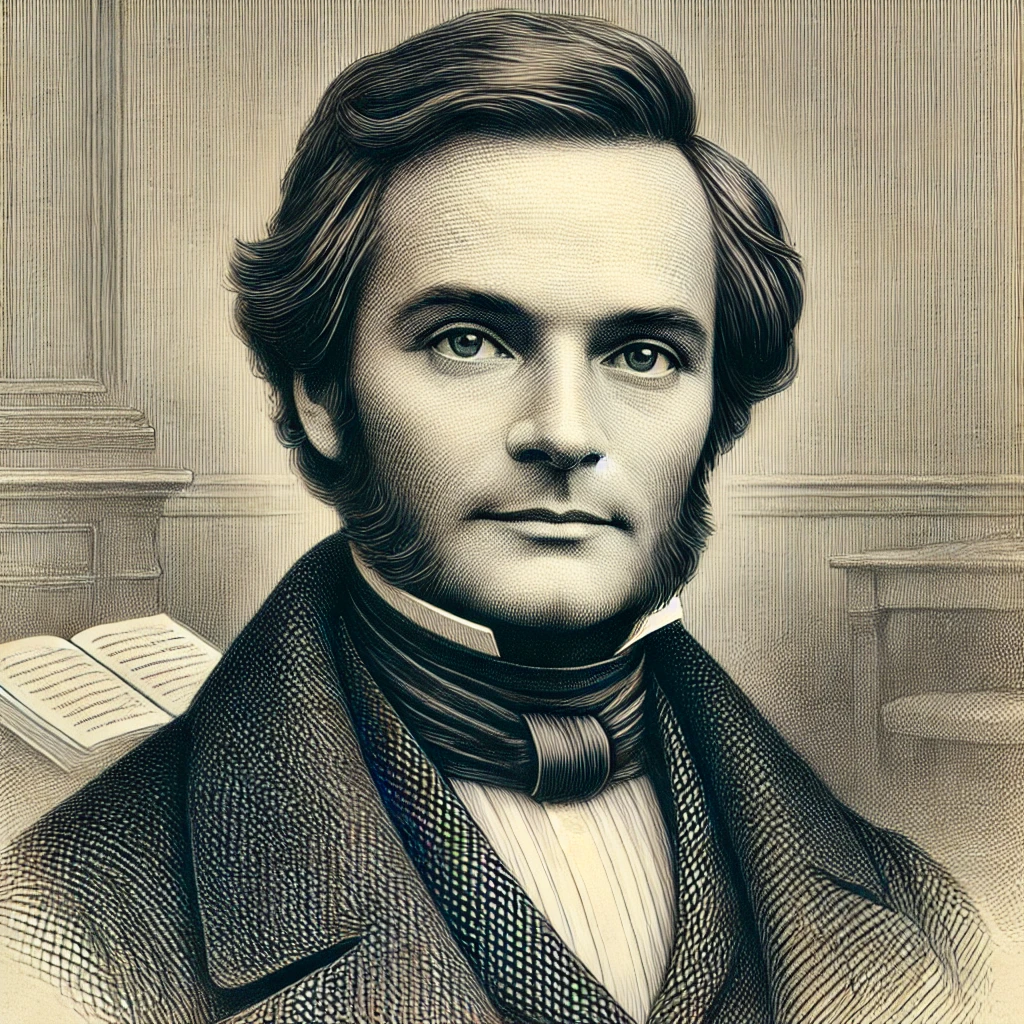Ferdinand Berthier is a name that resonates with profound significance in the history of deaf education and advocacy. A pioneer in the 19th century, Berthier dedicated his life to improving the lives of Deaf individuals, advocating for their rights, and advancing the recognition of sign language as a legitimate means of communication. His contributions have left an indelible mark on the Deaf community and continue to inspire educators, activists, and linguists around the world.
Early Life and Challenges
Ferdinand Berthier was born on September 30, 1803, in Louhans, a small town in France. Deaf from birth, Berthier faced the challenges that were common for Deaf individuals during this period—social isolation, limited educational opportunities, and a general lack of understanding of Deaf culture. However, Berthier was fortunate to enter the Institut National des Jeunes Sourds de Paris (National Institute for Deaf-Mutes of Paris), the first public school for the Deaf, founded by the renowned educator Abbé de l’Épée. This institution would become the foundation of Berthier’s life’s work.
Education at the National Institute for Deaf-Mutes
At the National Institute, Berthier received an education that was revolutionary for its time. The school embraced sign language as a primary mode of instruction, allowing Deaf students to learn in their natural language. This was a stark contrast to the prevailing oralist approach, which emphasized speech training and lip-reading at the expense of sign language. Berthier thrived in this environment, excelling in his studies and developing a deep appreciation for sign language, which he would later champion.
Ferdinand Berthier: The Educator
After completing his studies, Berthier began his career as an educator at the very institution where he had been a student. His role as a teacher allowed him to influence the next generation of Deaf students, but his ambitions extended far beyond the classroom. Berthier recognized the need for greater advocacy and institutional support for Deaf individuals, and he became increasingly involved in efforts to advance Deaf education and rights.
Advocate for the Deaf Community
Berthier’s advocacy was multifaceted. He sought to elevate the status of Deaf individuals in society, promoting the idea that they were capable, intelligent, and deserving of the same opportunities as hearing individuals. One of his most significant contributions was his work to preserve and promote sign language, which he saw as an essential aspect of Deaf identity and culture. At a time when oralism was gaining traction and sign language was being marginalized, Berthier’s defense of sign language was both courageous and groundbreaking.
Founding the First Deaf-Mute Congress
In 1834, Berthier organized the first-ever Congress of Deaf-Mutes in Paris, a historic event that brought together Deaf individuals from across France to discuss issues relevant to their community. This congress was a significant milestone, as it was one of the first times that Deaf individuals had a platform to advocate for themselves on a national stage. The success of the congress led to subsequent gatherings, which played a crucial role in uniting the Deaf community and advancing their rights.
Published Works and Contributions to Deaf Culture
Berthier was also a prolific writer, and his publications reflect his deep commitment to the Deaf community. He wrote extensively on the history and culture of Deaf individuals, as well as on educational methods and the importance of sign language. His works were not only educational but also served as advocacy tools, raising awareness about the Deaf community and challenging the misconceptions held by the broader society.
Ferdinand Berthier and the French Academy of Sciences
One of the highest honors of Berthier’s career came in 1844 when he was made a member of the prestigious French Academy of Sciences. This recognition was not only a personal achievement but also a significant step forward for the Deaf community, as it acknowledged the intellectual contributions of a Deaf individual at a time when such recognition was rare.
Legacy and Influence on Modern Deaf Education
Ferdinand Berthier’s legacy lives on in the many institutions, organizations, and movements that continue to advocate for the rights and recognition of Deaf individuals. His work laid the groundwork for modern Deaf education and helped to establish sign language as a respected and viable form of communication. Today, Berthier is remembered not just as an educator but as a trailblazer who fought for the dignity and rights of Deaf people.
Impact on the Global Deaf Community
While Berthier’s work was centered in France, his influence extended far beyond his home country. His advocacy for sign language and Deaf rights inspired similar movements in other parts of Europe and North America. The principles he championed—recognition of sign language, equal rights for Deaf individuals, and the importance of Deaf culture—are now foundational to Deaf communities around the world.
Berthier’s Role in the Development of Deaf Culture
Ferdinand Berthier played a crucial role in the development of what we now recognize as Deaf culture. His efforts to preserve sign language and promote Deaf identity helped to foster a sense of community and pride among Deaf individuals. This cultural foundation has been vital in the ongoing struggle for recognition and rights, providing a shared history and identity for Deaf people globally.
Challenges Faced by Berthier
Despite his successes, Berthier faced significant challenges throughout his life. The dominance of the oralist movement, which sought to suppress sign language in favor of spoken language training, was a constant threat to his work. Additionally, societal prejudices against Deaf individuals often made his advocacy work difficult. However, Berthier’s determination and unwavering commitment to his cause allowed him to overcome these obstacles and achieve lasting change.
Recognition and Commemoration
Today, Ferdinand Berthier is honored as one of the great pioneers of Deaf education. Schools, organizations, and events within the Deaf community are often named after him, and his contributions are studied by educators, historians, and linguists alike. Berthier’s life is a testament to the power of advocacy and the importance of standing up for one’s beliefs, even in the face of significant opposition.
FAQs
Who was Ferdinand Berthier?
Ferdinand Berthier was a 19th-century French educator, advocate, and pioneer in the field of Deaf education. He is known for his efforts to promote sign language and advocate for the rights of Deaf individuals.
What was Ferdinand Berthier’s contribution to Deaf education?
Berthier contributed to Deaf education by promoting the use of sign language, organizing the first Deaf-Mute Congress, and writing extensively on the history and culture of the Deaf community. He also taught at the National Institute for Deaf-Mutes in Paris.
Why is Ferdinand Berthier significant in Deaf history?
Berthier is significant for his role in advocating for the recognition and preservation of sign language, as well as his efforts to unite and empower the Deaf community through education and advocacy.
What was the impact of the Deaf-Mute Congress organized by Berthier?
The Deaf-Mute Congress organized by Berthier was a landmark event that provided Deaf individuals with a platform to discuss their issues and advocate for their rights. It helped to foster a sense of community and laid the groundwork for future advocacy efforts.
How did Ferdinand Berthier influence the perception of sign language?
Berthier was a staunch advocate for sign language at a time when it was under threat from the oralist movement. His work helped to legitimize sign language as a valid and important form of communication for the Deaf community.
What is Ferdinand Berthier’s legacy today?
Berthier’s legacy lives on in the continued recognition and use of sign language, the ongoing advocacy for Deaf rights, and the thriving Deaf culture that he helped to establish.
Conclusion
Ferdinand Berthier’s life and work are a powerful reminder of the importance of advocacy, education, and the recognition of diverse cultures and languages. His dedication to the Deaf community has had a lasting impact, ensuring that sign language and Deaf culture continue to be respected and valued today. Berthier’s legacy is one of empowerment, resilience, and the relentless pursuit of equality, making him a true pioneer in the history of Deaf education and advocacy.











